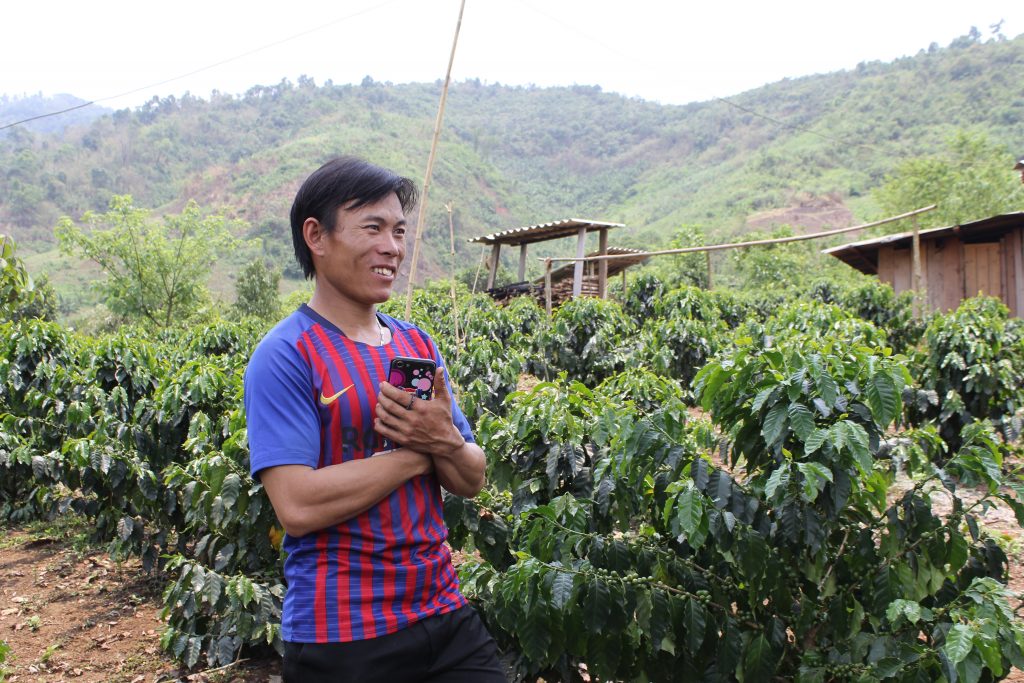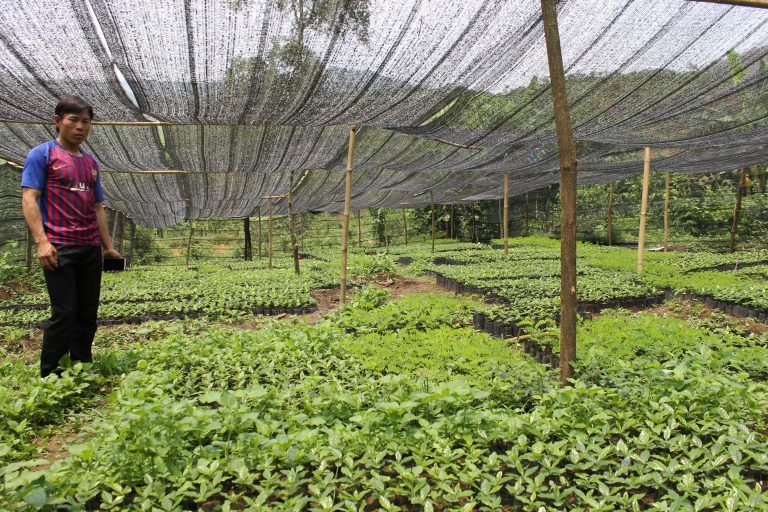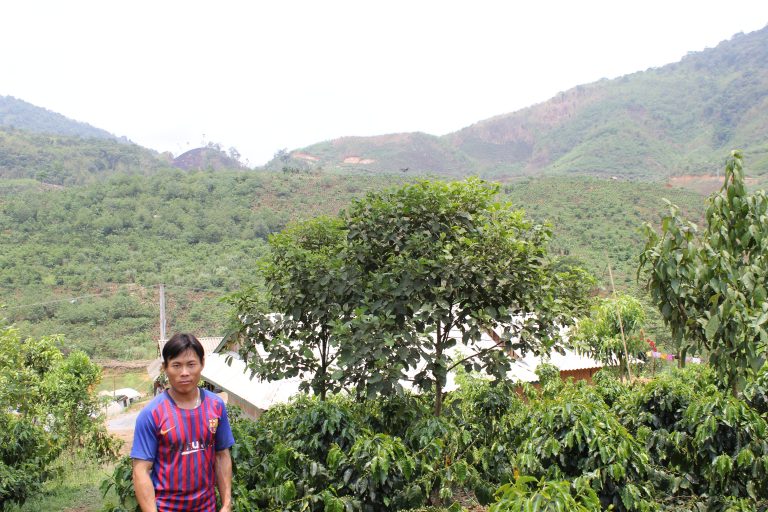
“We worked hard to grow coffee and eagerly waited for the businessman’s return. But he never came back.”
Mr. Chongneng Vang
Houaysou Village, Xone District
Eight years ago, a businessman visited our village and asked if we would be interested in growing coffee. He promised that he would return to buy from us, and he even gave us some seeds and showed us how to use them. As a village, we did not really know anything about coffee, but we thought it could be a good opportunity to farm something new and increase our income. We worked hard to grow coffee and eagerly waited for the businessman’s return. But he never came back. Our only buyer had disappeared.
My village was disappointed. We had spent so much time and money for nothing. There was also a lot we did not know. What would happen if he did come back? Would he buy from all farmers or just one? How much would we get? Would he come back again? We realized that if we wanted to move out of poverty, we could not depend on one person. But we still felt uncertain and powerless. We returned to cultivating rice and corn as we had practiced for generations, and we returned to the problems of selling rice and corn. The prices were very dependent on supply and were set by traders. They could be 1000 kip (US$0.11) per kilogram one year and 600 kip (US$0.06) the next. We raised livestock too; however, because of disease, we could not sell commercially.

Five years later, we heard about the opportunity to build a coffee cooperative. Because of the trader from before, we lacked the motivation to continue with coffee. However, we learned that if we combine our resources with other farmers, we may have a higher chance of reaching more buyers. It is possible to grow better crops by sharing knowledge and teaching each other. Most importantly, by working with other farmers, we are more able to take charge. We can find our own buyers and sell on our own terms. We decided to try. We knew we had a lot to learn and that we still needed to be careful. But, we felt more confident being in a team where farmers support each other. We hope that we will not have to wait on anyone else like we did before.
We still have some of the businessman’s coffee plants in our village. Since they are almost 10 years old, they are much taller than our current plants and they serve as a reminder of our past disappointments. As village head, I’m learning as much as I possibly can so that I can get the most out of our coffee plantations and set an example for other farmers. I have tried coffee and learned that it has many different tastes. I really want to know as much as I can about coffee because in the future, I dream about owning a shop in my village so that people can have the opportunity to try my coffee where it was grown.

